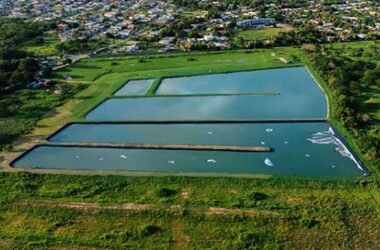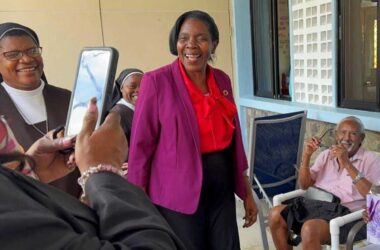NEW YORK, CMC – A New York-based financial advisory firm specializing in investment consulting and wealth management has defended the Citizenship by Investment Programmes (CIP) being undertaken by several Caribbean countries.
Reacting to the “Passports for Sale” programme aired on CBS flagship programme “60 Minutes” last weekend, Apex Capital Partners Corp., said, “while 60 Minutes certainly featured concerns expressed over the years, most of the countries and services providers participating in these Citizenship by Investment Programmes are doing so via a successful process that supports domestic growth as well as the individual citizen.
“Our team witnesses it first-hand the extensive due diligence process, which involves background checks and interviews, while also conducting information exchanges within the international community, including numerous foreign governments,” said Nuri Katz, founder and president of Apex Capital Partners Corp.
In a statement, he said “the programmes we recommend are credible, best of breed programmes which rely upon maximum possible oversight”.
During the “Passports for Sale” segment, Katz noted that multiple on-camera interviewees “brought forward concerns surrounding the due diligence performed by countries providing citizenship in exchange for a one-time fee or investment within said country.”
He said Apex Capital Partners Corp. is an internationally recognized financial services firm that provides end-to-end execution in areas such as second citizenship, business immigration, wealth management, and real estate investment opportunities.
Katz said his company “interacts directly with many governments mentioned in the segment, including Antigua and Barbuda, Cyprus, St. Lucia, Dominica, and St. Kitts – Nevis on behalf of its clients.
“Many of the countries APEX works with provide citizenship that facilitates ease of travel, simplifies financial management, and offers a high quality of life,” he said, noting that the television programme had “incorrectly” claimed that the industry was created by a service provider in the last decade.
In fact, he said the industry was created in 1984 by St. Kitts and Nevis, “when they launched the first Citizenship by Investment Programme, which was then followed by Dominica with the launch of a similar program in 1994”.
Caribbean countries launched the CIP as a means of attracting foreign investments. The islands provided citizenship to these foreign investors on condition that they make a significant financial investment in the socio-economic development of the country.
Earlier this week, Dominica’s Prime Minister Roosevelt Skerrit said that Opposition Leader Lennox Linton had lied on several occasions when he appeared on the television programme that was critical of the island’s CIP.
“Why a Member of Parliament of Dominica, who fancies himself as a future leader of this country, would wish to portray such an image of Dominica to the international community, is mind boggling, to say the least,” Skerrit told a news conference.
He said that Dominica had “invested millions of dollars and countless man hours marketing Dominica’s suitability as an ideal place in the Caribbean for persons to visit and do business, and with which high net worth individuals can associate with pride.
“Our programme is among the most respected and revered in the global industry. It has grown in leaps and bounds in recent years and was at the centre of our post-Tropical Storm Erika recovery efforts and is largely financing our community and other locally funded projects.”
Linton, speaking at a news conference on Friday said the opposition United Workers Party (UWP) supports the CI, but had some concerns.
He told reporters that “while we support it, we also know and are concerned that the programme has been mismanaged and corrupted to become primarily a source of Labour Party election campaign financing and wealth creation for a select few people, while millions promised to national development in constituencies like Marigot, remain unspent”.
Linton also claimed that there is a lack of accountability and transparency under the programme in his country.
“I speak to the media locally, regionally and internationally because complaints about a lack of accountability and transparency and the dangers of a CBI Program without integrity to global security have fallen on the deaf ears of a stubborn… government,” he said.
“Dominica, thirdly, has a moral obligation to responsible behaviour for the advancement of global civilization. It has absolutely no right to engage in behaviours that endanger the security of other countries on the excuse that such behaviour is driven my economic necessities,” he added.
In the statement, the new York-based financial group said that during the CBS programme “an individual named Peter Vincent raises significant questions surrounding due diligence for countries mentioned in the segment, while curiously omitting that his present employer, Thomson Reuters, is actually a due diligence services provider, commercially competing to be hired by those countries that have Citizenship by Investment Programmes.”
“Unfortunately, his role and clear conflict of interest in participating in the segment is not mentioned by the journalists or its producers,” Katz said, noting that APEX applauds 60 Minutes for the focus it has placed on CIP and that due diligence is “of the utmost importance to these programmes.
“APEX looks forward to the positive economic support these programmes have for countries around the world, their respective citizens, and the future growth of the industry,” he said






![Amy Stephen [Photo credit: Community Tourism Agency]](https://thevoiceslu.com/wp-content/uploads/2026/01/Amy-Stephen-feat-380x250.jpg)







